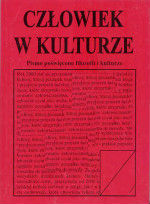
In the honor of Mieczysław Albert Krąpiec for his 50. anniversary of the academic work
Laudacja z okazji 50-lecie pracy naukowo-dydaktycznej Ojca Profesora Mieczysława Alberta Krąpca
Keywords: Krąpiec
More...
Keywords: Krąpiec
More...
Keywords: wisdom; science; freedom
More...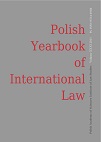
Keywords: bibliography
A list of Polish publications on international and European law in 2011
More...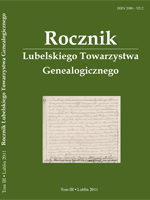
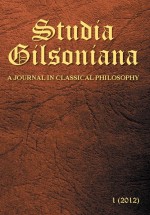
Keywords: religion; politics; culture; Western civilization
The author undertakes the problem of the identity of Western civilization in the light of a correlation between politics and religion. First, he traces the theoretical debates about the mutual correspondence of politics and religion in ancient Greece. Following two extreme errors depicted by Sophocles in his “Antigone,” and by Plato in his “Apology of Socrates,” he infers that the “Golden Mean” is necessary in resolving the problem of politics and religion. Then, he examines the underlying errors put forward in the history. His investigations show the erroneousness of endowing either politics or religion with sovereign status in culture. There is always a conflict between politics and religion unless man regains his own sovereignty from them. Ultimately the author arrives at the conclusion that the “Golden Mean” correlating politics and religion distinctly strengthens the identity of the Western Civilization, and consists in respecting all real and universal parameters of human person life, such as cognition, freedom (and responsibility), love, agency in law, ontological sovereignty, and religious dignity.
More...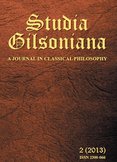
Keywords: philosophy; seminary; philosophical realism; faith; reason; priest; Christian philosophy;
The author attempts to answer the question concerning whether or not philosophy is needed in seminaries. In light of his analysis, it can be concluded that philosophical studies for future priests are a serious alternative to the fideistic positions often adopted by Catholics. The presence of philosophy in the seminary curriculum is supported by: (1) the need for building intellectual foundations of the religious faith professed by a cleric; the faith which cannot do without reason and abstain from justifying the rationale of its content; (2) the need for introducing the alumnus to the mysteries of the classical philosophy of being which can equip him with a better understanding of human nature and the surrounding reality. In this way, the seminarian: (1) acquires a reasonable belief that the human mind is able to know the objective and universal truth, including the truth about God as the Ultimate Cause of all that exists; (2) is able to enter into an intelligent dialogue about the truth with an increasingly globalized world.
More...
Keywords: humam nature; state
The author aims at reconstructing essential features of state in the light of four different interpretations of human nature. Out-carried analyzes lead to a conclusion that, only in the perspective of a position which recognizes the necessity of fulfilling human nature, the main task of state can consist in assisting the development of man as person. While accepted other conceptions of human nature, activities undertaken within a state do expose men to destructive consequences. Assuming that human nature is incurably vicious, the state is faced by an inevitable perspective of internal antagonisms accompanied by authoritarian ways of preventing them. An apotheosis of human nature results in a vision of state open to etatism and totalitarianism. Whereas attempts of constructing human nature lead to widely conceived social experiments which usually use states as handy instruments of oppressing human persons.
More...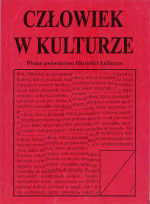
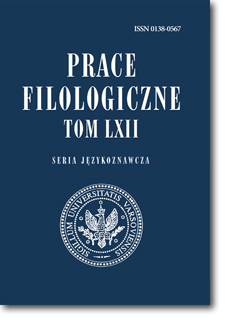
Keywords: styl retoryczny; przedmowa; oświecenie; epoka saska; the rhetoric style; foreword; preface; The Enlightenment in Poland; The Saxon Epoch
The article presents the stylistic changes in Michał Abraham Troc’s prefaces and forewords written at the end of the Baroque and the beginning of the Enlightenment period. Three texts of comparable length, published at twenty years intervals have been studied: the foreword to Argenida by Wacław Potocki, i.e. the first volume of the {Biblioteca polono-poetica} (1728), the prefaces to Troc’s French-German-Polish Dictionary (1744), and his Polish-German-French Dictionary (1764). The style of the texts had evolved and there are observable differences in the proportion of emotional and intellectual elements. The composition of the foreword and the prefaces, and the use of linguistic means show that the respective texts belong to different epochs.
More...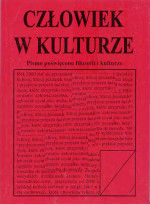
Keywords: nation; right; culture
More...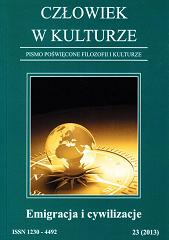
Keywords: media; emigration; Poles; Radio Maryja;
The author describes his own observations and experiences which he gained during his eighteen years work for the Radio Maryja, especially his contacts – these in person, and those via air-phone-calls – with Poles who are settled in different parts of the world. He concentrates on the role, which is played by the Radio Maryja in the emigrant milieu, and underlines that for Poles who have ever lived abroad the contact with their Fatherland has always been very important. In the past, of course, it was not so easy as it is now due to the development of Internet and technologies which enable the long-distance satellite broadcast. Only in last decades the contact of Polish emigrants with their Fatherland became more immediate and lively due to the modern media which apply modern technologies. The author shows that Radio Maryja, whose basic assignment is to evangelize, has always endeavored to reach any place where Poles are settled at home and abroad.
More...
Keywords: migration; culture; civilization; personalism; family; society;
The author points out that the recognition of relation between migration and civilization is the basis for explanation of the specificity of human migration, significantly different at this level from migration of the natural world. Such recognition can help the immigrants in understanding of their own human situation in which they find themselves and perspective, what awaits them, not only in the individual but also in the family and national level. Migrating fact can mean the loss of personalistic culture, the loss of the family model belonging to some culture and a loss of model of society in its historical dimension. These are the dilemmas facing the man, and only a man. Such dilemmas do not stand in front of the animals. Such dilemmas are only human. And they are the greater, the higher culture one represents. Migration reveals its deepest meaning only in the perspective of personalism, only then you can assess which civilization is truly a treasure.
More...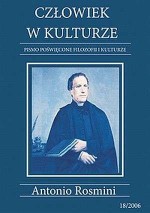
Keywords: philosophy; metaphysics
The article concentrates on a methodological status of philosophy as a science which differs from other disciplines. The author undertakes an attempt to indicate a moment when philosophy as a science came to life. He recalls Plato’s theory of ideas, showing that in Plato’s works there are several different meanings of the term philosophia that not always designate a science in its strict sense. Afterwards, the author presents a position of Aristotle who rejected the Platonian theory of ideas and replaced it by his theory of form that satisfies conditions of the scientific object. He underlines that Aristotle as a realist looked at philosophical problems in respect of their inferences to the reality, what caused that Platonian idealism turned out to be too schematic and dissent from the real world. Then, the author undertakes a problem of introducing and interpreting an objective name tà meta tà physiká. As he notices its interpretation evolved into three directions. They found their origins in Simplicius, St. Thomas Aquinas, and Alexander of Aphrodisias whose writings were most consistent with the spirit of Aristotle’s philosophy. The author indicates that the expression tà meta tà physiká is the name of a philosophy-science (a rational cognition) whose object (i.e. being) both transcends the natural, and embraces it. For the natural is a being, but not every being must be „natural”, as there are beings beyond these natural. Therefore, it is the most difficult science accessible to man which transcends natural sciences. The author remarks that metaphysics was a project of science that satisfied some determined criteria established by Stagirite himself, a project realized only in part.
More...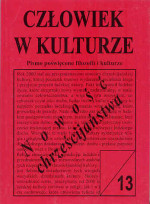
Keywords: neoplatonism; Western civilization; orientalism
More...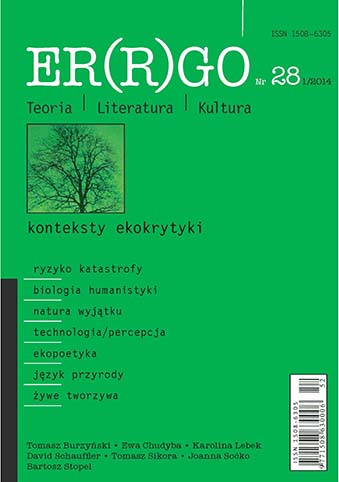
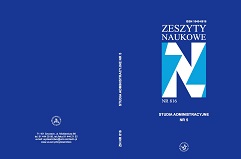
Keywords: administrative history; public administration
The history of Jarocin dates back to 1887. It was created out of parts of Pleszew, Wrzesin and Srem Districts and covered an area of 720.5 square kilometers. After Poland regained its independence on 1 April 1932, Jarocin District remained within the same borders. As a result of an administrative reform carried out at that time, it became one of the largest Districts of Poznah Province. A large part of the liquidated Pleszew District was joined to it. During the occupation and the first years after the war, the District's borders did not change. On 1 January 1956, Pleszew District was re-established and the borders of Jarocin District from before 1932 were reintroduced. The District was liquidated on the basis of the Act of 28 May 1975 on the country's two-level administrative division. Presently, Jarocin District is one of 31 rural districts of Wielkopolska Province. It covers an area of 587.7 square kilometers and its population is more than 70 thousand people. It was established on 1 January 1999, as a result of the reform of the country's administrative division. It comprises Jarocin, Jaraczewo, Kotlin and Zerkow.
More...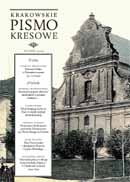
Keywords: turistic experience; Kresy; Kresy image:stereoptype of Kresy
The paper attempts to characterize the stereotype of former Polish „Kresy” which seems to be vital in Polish literature in a historical view and in popular image of contemporary Ukraine. The first part of the article concentrates on the process of forming the „Kresy” mythology from historical experiences which were taken on the borderline between two nations – Poles and Ukrainians over the centuries. The landscapes of „Kresy”, the myths of heroes and the Bulwark of Christianity idea decided of the shape of the image of „Kresy” that was current till the beginning of 20. century, when many historical facts occurred in that region (Ukrainian struggle for independence, I World War, Polish–Bolshevik War 1920). To a certain extent those facts destructed the idyllic „Kresy” image. Nevertheless, the myth was supported by the tourism that was expanding from the 1870s, especially in the Eastern Carpathian region. In the second part of the article the author presents the results of her fieldwork, that was conducted among the Polish and Ukrainian students in Poland. The historically constructed stereotype is being compared with the stereotype that is actual in a touristic experience of Ukraine which belongs to young people who define themselves as „interested in” Eastern Europe culture and history.
More...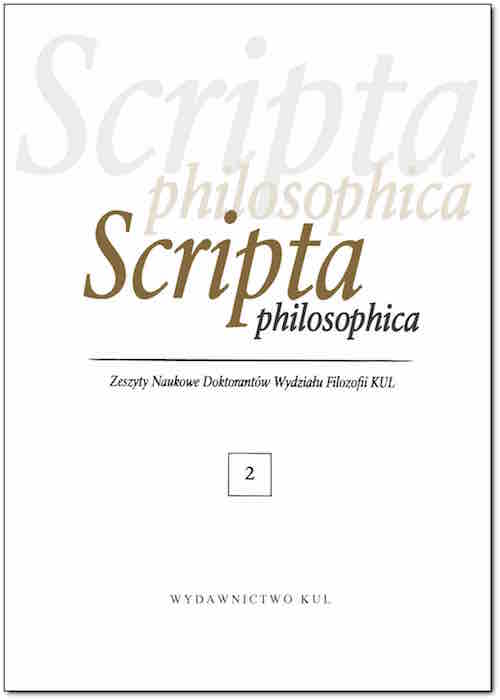
Keywords: terrorism;terrorists;Michael Walzer;take-overs;surmounting
The paper seeks to show the Phenomenon of modern terrorism that started in the 1920's and is present now. Article has calling attention on puropse on global character of terror and lack of forceful manner to attempts overcoming. In first sequence are depicts the reasons of terrorism (present short historic outline leading to the most important events of terrorist's attacks and motives what terrorists use), terrorism's consequences (terrorist's attacks in last decade and important role of mass media that played in devolution of infomation about participations of terrorist's events) and this, how to belonged to defend before it (antiterrorism) from prospect of Michael Walzer – American philosopher for over thirty years concerning of the problem of using violence in international conflicts, considered of one of the most important American polemicist and public intellectual, a professor emeritus at the Institute for Advanced Study (IAS) in Princeton, New Jersey. All above-mentioned notions have been analyzed about main three Walzer's papers: "On toleration", "Just and Unjust War", and "Arguing about War".
More...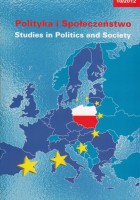
Keywords: constitution; freedom; political parties; regulation; Polska Partia Socjalistyczna
The politicians of the Polska Partia Socjalistyczna (PPS) believed that the adoption of the Constitution was one of the most important and the most urgent tasks of the Polish Seym (Polish Parliament) elected on 19 January, 1947. Immediately, in the spring of that year, the authorities of the PPS started the inner-PPS works to get ready the party’s politicians for the constitutional debate and to help them to develope a position on important issues of the future of the Polish political system. The party officials asked the theorists of the constitutional law and the practitioners dealing with the social and state problems to prepare elaboration concerning chosen political issues which were part of their interests. Konstanty Grzybowski and Michał Szuldenfrei wrote articles about freedom of founding and functioning of political parties which had key importance in regard to the system existence. The authors of both texts supported the constitutional regulation of the status of political parties what was not positively accepted among the contemporary liberal groups. Both Grzybowski and Szuldenfrei believed that in the situation in Poland in 1947, which was a transitional period characterized by the existence of strong antisystemic opposition, it was necessary to regulate political parties and restrict the freedom of their founding and functioning.
More...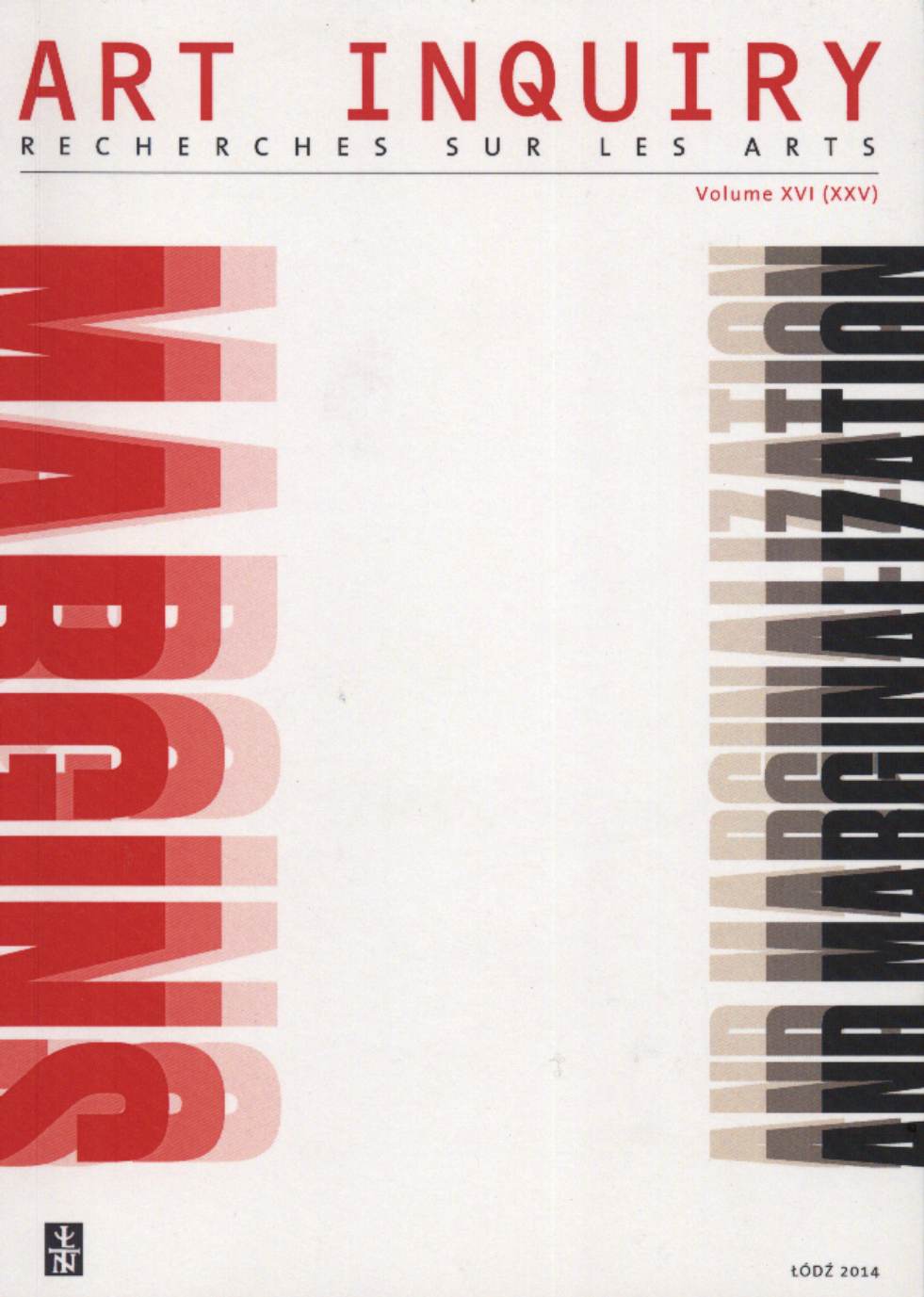
Keywords: Imagination; altered states of consciousness; visionary art; extrasensory images in art; transposing works of art
This article attempts to answer the question of whether a work of art created under the influence of extrasensory images can be considered a marginal phenomenon in the European art. The author points out that in our culture the interest in this kind of creative inspiration gained importance only in the mid-nineteenth century. Then, she discusses various causes of altered states of consciousness and subsequent stages of trance during which extrasensory images appear. Focusing on works of art which were inspired by such images, she refers to the concepts of David Lewis-Williams, Stanislav Grof, Stanisław Ignacy Witkiewicz, Aldous Huxley and Carl Gustav Jung. The text is concluded with a reflection on the contemporary significance of art with extrasensory sources. The author emphasizes the remonstrative nature of such art and its role in self-knowledge. It is believed that extrasensory images expand our understanding of personality and allow us to go beyond the scope of the problems imposed through the media by politicians or religious leaders.
More...